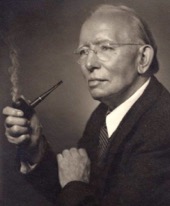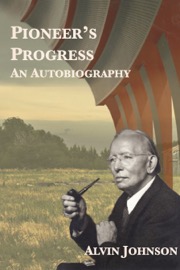
In 1922, Johnson was among the founders of The New School for Social Research, became its director, and later, president, a position he held until 1946. Under his leadership, The New School grew into one of the nation’s most important centers of adult education, as well as a leader in the social sciences. While working as associate editor on The Encyclopaedia of the Social Sciences, Johnson came into close contact with European scholars, and became acutely alert to the threat posed by the rise of Hitler in Nazi Germany. This led Johnson to mount a campaign to rescue scholars whose professional success, livelihoods, and, increasingly, lives, were endangered. In 1933, largely supported by the benefactor Hiram Halle, Johnson finally successful in his efforts, established the University-in-Exile at The New School (later called the Graduate Faculty of Political and Social Science); later, during World War II, he also invited exiled French scholars to reestablish the Ecole Libre at The New School.
A prolific writer before and after his retirement, Johnson’s autobiography, Pioneer's Progress, was published in 1952. Johnson died in Nyack, New York.
Click on the cover for details about the eBook:




